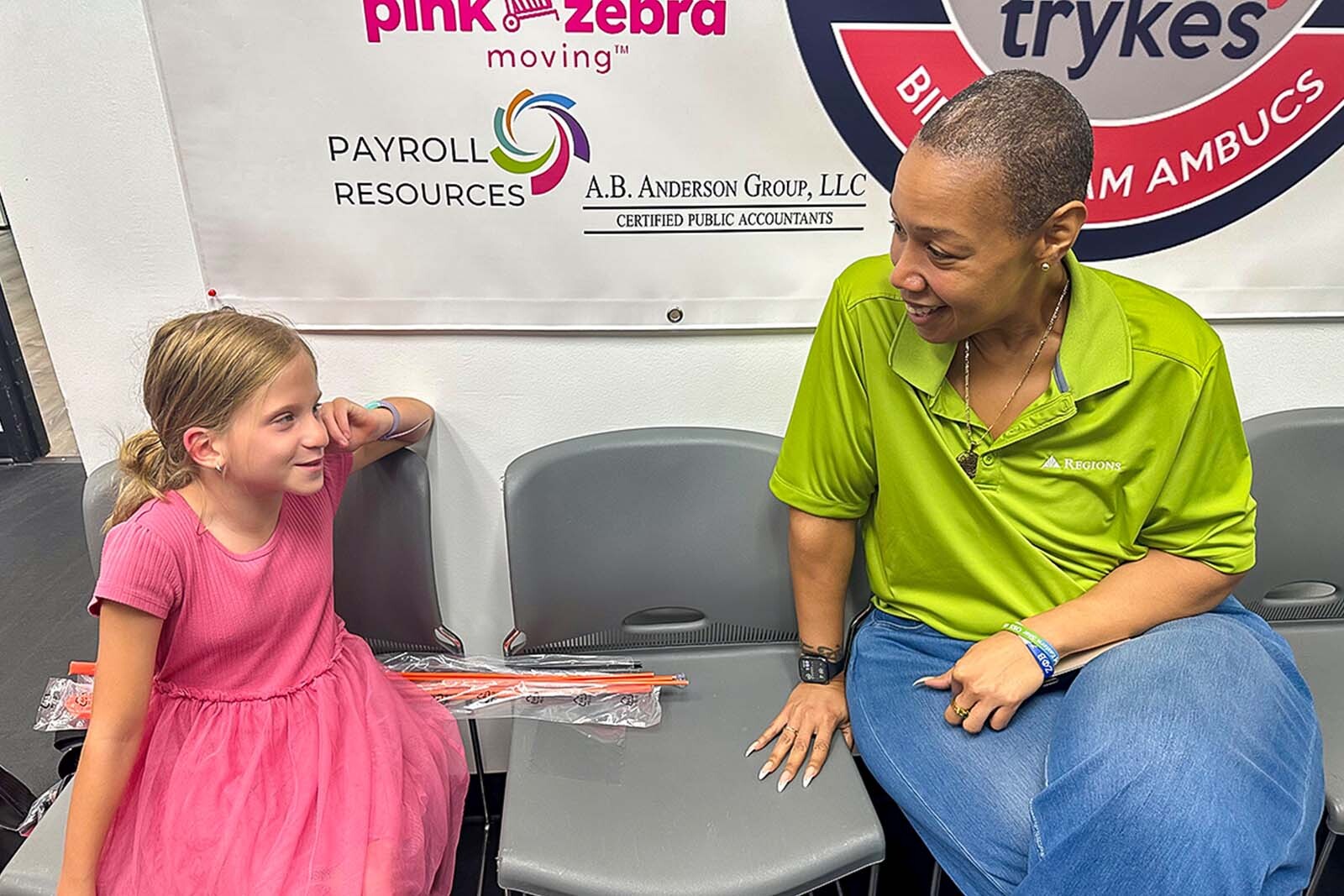As Milana Chilton pedals across the floor on an adaptive bike, you see the confidence building until she erupts in a huge grin. She’s got this.
Just a few feet away, Donna and Jason Chilton watch the 10-year-old Milana and her 16-year-old sister, Katy, master another of the brand-new Iron City Trykes adaptive bikes, designed for people with physical limits. Neither parent has to say much. Instead, their eyes say everything.
For Debbie Bailey and Zach White, this is just a typical Sunday at their Birmingham, Alabama, headquarters where Iron City Trykes/Birmingham AMBUCS distribute new forms of fun transportation and fit them specifically to their young clients.
“We gave 107 bikes last year,” said Bailey, the executive director of the nonprofit. “We’re just in July, yet we’ve already given 85 this year. So, we’re going to exceed what was a record year.”
AMBUCS (American Business Clubs) is a national organization, but the first chapter was founded in Birmingham in 1922. Thirty years ago, the Longview, Texas, chapter provided the first adaptive bike at the request of a local pediatric therapist. Within a few years, the original Birmingham chapter was on board, providing adaptive bikes for amazing people.
Under the direction of Bailey and White, the director of marketing and PR, the Iron City team works with hospitals and physical therapists to identify those in need of specialized transportation. Meanwhile, the members of AMBUCS help raise the funds to keep the wheels spinning.
“Retail, these bikes would cost $2,000 plus,” Bailey said, “and they go wholesale for anywhere from $800 to $1,300, depending on the size of the model. We ask our families for just a little skin in the game – basically, a $100 donation to their bike.”
Oftentimes, though, families will offer to pay more – even the full cost – when circumstances allow.

Getting bikes is just the first step. Two weeks before distribution day, Russ Zusi’s leadership team gathered at Iron City Trykes to assemble the adaptive bikes. Zusi is Regions Bank’s Chief Risk Officer. For his team, which spends most of its time mitigating serious banking challenges, this opportunity is marked by laughter and excitement.
Oliver Williams and Gary Walton work on a recumbent bike in one corner. Zusi, Martha Raber and Mike Averett build another across the room. As Vicki Faucett and Kristen Doleys celebrate finishing assembling their bike, Doleys triumphantly grabs the handlebars and smiles for a photo. Watching everything unfold with a wry smile: Susan Clowdus, Regions’ Community and Engagement Partnership manager.
In just a couple of hours, the team has managed to assemble a half-dozen bikes, bringing Iron City Trykes one step closer to distribution and fitting day.
When the presentation day arrives, Donna and Jason Chilton pack up two of their five children and make the 90-minute drive to Birmingham from Piedmont, Alabama.

The couple first adopted Katy more than a decade ago from Ukraine, adding to their budding family. The Chiltons already had two biological children, ages 4 and 3. But early on, they learned that Katy was born with spina bifida and hydrocephalus, conditions that affect motor skills and movement and that can impact cognitive ability.
Then came another bit of news.
Katy also had a brother.
“The Lord changes your heart,” Jason said. “From the time we saw her photo, she was our daughter as the Lord intended. We were told she had spina bifida and didn’t know what that really meant. But we knew we lived close enough to Children’s of Alabama that we’d have all the medical help we’d ever need.”
Oh, and the brother? The Chiltons didn’t blink. “We adopted Brody, as well.”
Six years later, they learned about Milana. While they initially thought they were done expanding the family, the idea of adopting another child from Ukraine – one with the same disability as Katy – proved another gift from above.
But this time, things would be even more difficult.
A week before the two were scheduled to leave for Europe, Jason lost his job in environmental health and safety. The day they were supposed to fly out, the COVID lockdown began and everything halted, delaying their travel to Ukraine for three months. Finally, they arrived in a remote part of the country, near the Russian border. Just a few weeks later, Jason’s old company hired him back at a different job and allowed him to work remotely from Ukraine for the next year.
“We’ve never lacked for anything,” Jason said. “When we first started the adoption process, we were living paycheck to paycheck, and with two little ones at home. But sometimes you’re called for something bigger.”
As Milana exits her bike, she takes a seat next to Nicole Hamer, a volunteer from Regions Bank. In a rush of excited words, Milana shared her experience of her first ride.
As Katy finished her fitting and getting the hang of her adaptive bike, Jason and Donna begin rounding everything up to pack their pickup truck. In the parking lot, Regions volunteers Craig Tankersley and Charles Fuller helped Jason lift the adaptive bikes into the bed for the trip home.
Already, Donna was thinking ahead.
“We homeschool our kids,” she said. “Now, we can all get PE credit and ride our bikes together. This really is a blessing.”
